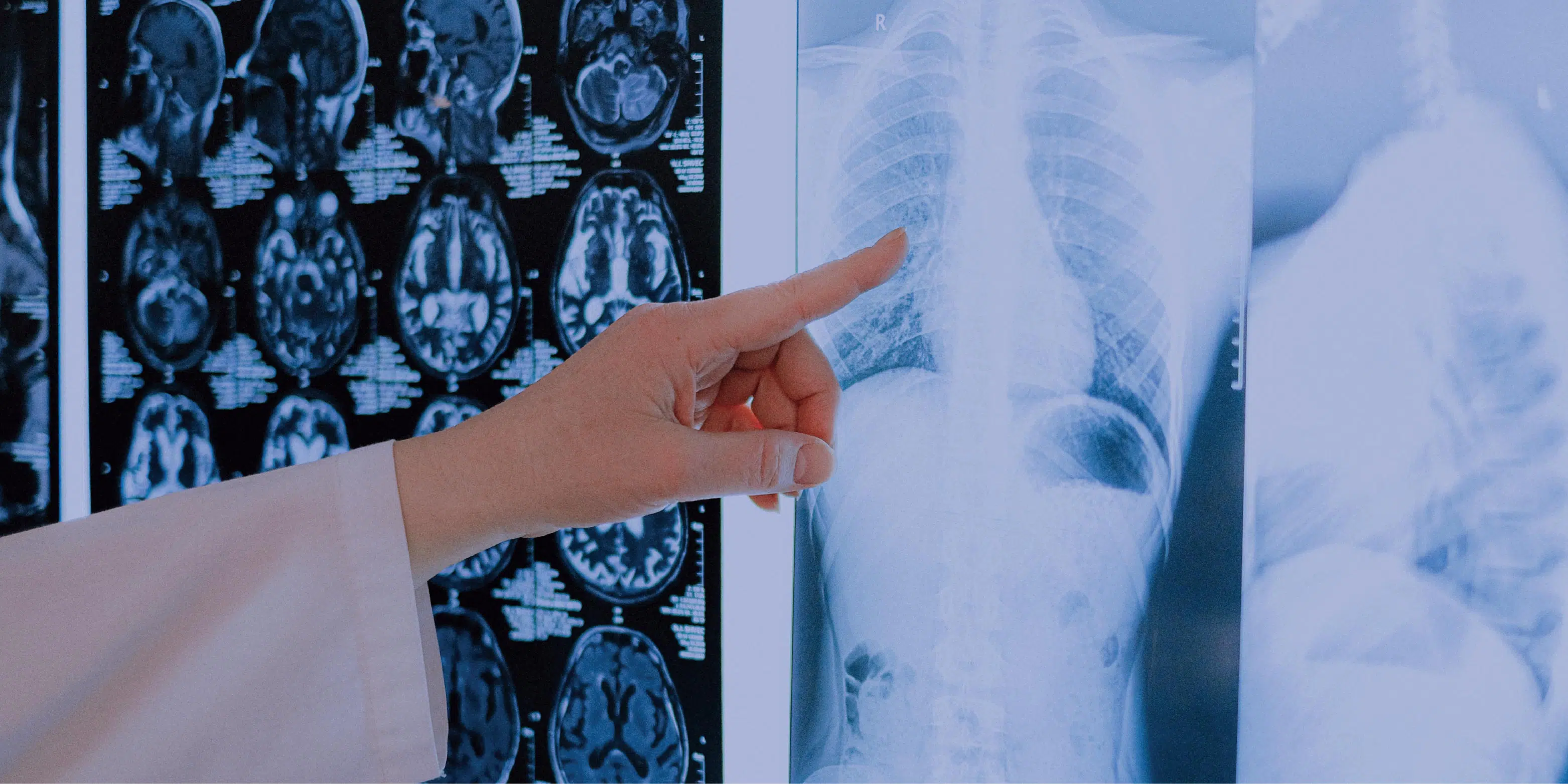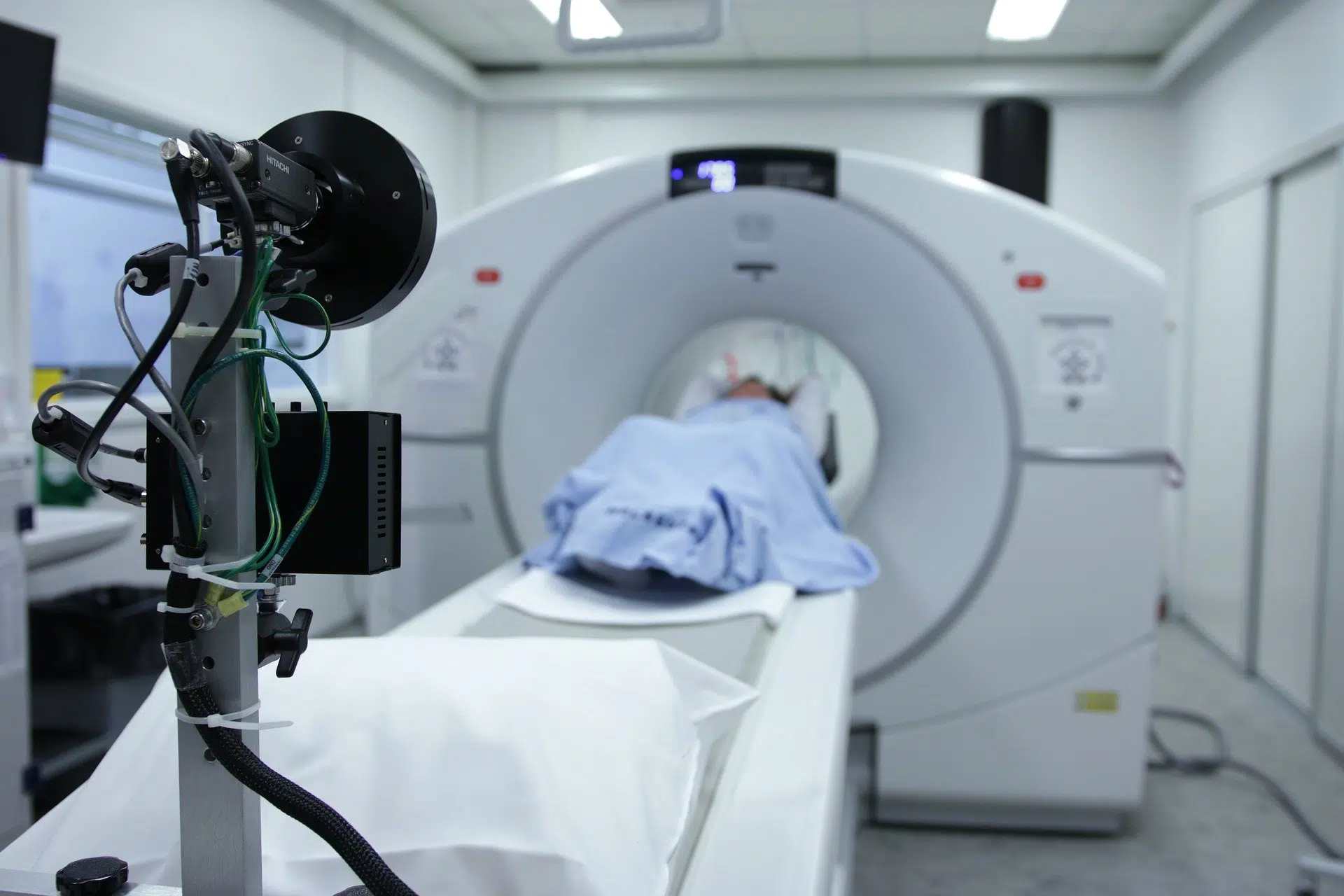How Long Should You Be Sore After a Car Accident? Whiplash, Strain, and More
Injuries like broken bones and lacerations from an accident are obvious at the time of the accident, and clearly need to be treated right away. When the trauma isn’t as easy to spot, victims may endure unnecessary pain and soreness, assuming it will go away.
After a car crash, it’s common to be sore for a day or two. But what if the pain lasts longer than that? How long should someone suffer before assuming their injuries are more serious than they thought?
To be clear: We are not doctors, and this article is not meant to replace the advice of a medical professional. But we have seen all-too-often what happens when someone is injured in an accident and fails to take their injuries seriously, until it is too late.
Here at Hipskind & McAninch, we always recommend getting medical help after a car accident. Whether it’s from first responders at the scene, in an emergency room, or at a doctor’s office, it’s a good idea to get checked out as soon as possible after the event.
There are three important reasons why:
- Victims of a car accident might not realize the extent of their injuries right away.
- Proof of injuries is necessary when seeking compensation.
- Pain that lasts longer than expected can be a sign that something is seriously wrong, and a full recovery may depend on how quickly injuries are diagnosed and treated.
What to Expect Right After an Accident
Immediately after an accident, victims may turn down offers of medical help. They may not feel hurt at all. This is often due to a surge of adrenaline. Adrenaline is a hormone that floods the bloodstream when a person experiences a sudden shock or is under stress.
Adrenaline makes the pupils dilate and the heart rate, blood pressure, and sweat production increase. All of these things are meant to prepare the body to either escape or attack when faced with danger.
People often feel fine after an accident because adrenaline literally blocks the sensation of pain. We’ve all heard stories of people heroically pulling people from a dangerous situation despite their own injuries. An adrenaline rush is what makes these actions possible. The injury was there all along, but the person simply did not feel it yet.
Think of that feeling you get when you slip on the ice and almost fall. The sensations you feel as you catch yourself are a milder version of what an accident victim feels. As the initial adrenaline surge stabilizes and levels out in the body, victims may notice a rapid heartbeat, breathlessness, or feeling weak, shaky, and lightheaded. And only after that does the pain of any injuries start to settle in.
Normal Discomfort vs. Serious Injury
Soreness for the first 24 or 48 hours after a car crash is normal. This is true even if it’s only a fender-bender. The body tenses up during an accident, especially if the victim sees it coming and braces him or herself.
The result of that tension is usually muscle soreness. Just like after a strenuous workout, the pain doesn’t show up immediately, but it doesn’t last more than a day or two. There might also be bruising or swelling that causes temporary discomfort. For example, the seatbelt or airbag may leave a bruise. This too should be temporary.
Read this article to understand why it can take time to feel pain after a car accident.
Three things can signal that an injury is more severe and not just a normal, minor discomfort.
- Severe pain that makes sleep and movement difficult
- Other symptoms like headaches, nausea, blurred vision, dizziness, difficulty concentrating, or numbness
- Pain that gets worse or does not improve within a week
When receiving medical treatment right after an accident, the doctor will often describe symptoms like these to watch for. If a victim experiences any of them, they should see a doctor as soon as possible, whether they’ve already been checked out or not. In some cases, accident injuries might not show up right away, or they could trigger a pre-existing condition.
Serious Accident Injuries
When pain and soreness last beyond the first 48 hours after a car accident, it may be one of these more serious injuries:
Whiplash
Whiplash is a soft-tissue injury that can show up as pain and stiffness in the neck, shoulders, and arms. Victims might also have headaches.
Spine Injuries
Back pain or numbness can signal a spinal injury. Trauma from a crash can cause a herniated disc, sciatica, or a fractured vertebrae.
Sprains and Strains
Pain, especially when bending a joint or bearing weight might mean an injury to ligaments or tendons. Victims might have twisted a knee, ankle or wrist. These sprains can take a long time to heal.
Concussions and Traumatic Brain Injuries
Victims need to be alert to injuries that affect the head and brain. They are usually accompanied by headaches, but can also include dizziness, nausea, blurred vision, tinnitus, and changes to cognitive function. In worst cases, a brain bleed can form or the victim can have a stroke.
PTSD and Psychological Injuries
In addition to physical injuries, accidents can cause emotional or mental injuries too. It may be normal to lose sleep the first night after a crash, or relive the details for a day or two. If the feelings of fear and anxiety don’t pass, it could be a more serious post-traumatic condition.
Taking Too Long to Heal Could Mean a Serious Injury
Most of the conditions and injuries mentioned above will typically resolve themselves in about six weeks. Some may take longer depending on their severity and how long the victim waits to get help.
But six weeks is a long time to be sore after a car accident. If it takes that long to heal, the victim will almost certainly have some expenses as a result of their injuries. They may even be unable to go to work for all or part of that time. Costs may include doctor visits, physical therapy sessions, medication, and medical supplies such as braces, splints, slings, or crutches. More severe injuries could require surgery or hospitalization. If they did not cause the accident, they deserve compensation for these costs, as well as any lost wages and other associated losses.
Getting Compensation After a Car Accident
To receive compensation, victims need to be able to prove that their injuries were a direct result of the car crash. This is why it is so important to get checked out right away. Medical assistance offered at the scene should be accepted, even if you are feeling fine. If there is no ambulance or first responder, an appointment should be made with a doctor—and a personal injury attorney—as soon as possible. These actions will help establish documentation about any early signs of injury.
As you see medical professionals, keep records of all out-of-pocket medical expenses. These will provide proof of what the injury has cost you, in case there are injuries stemming from the accident for which you can be compensated.
Soreness after a car accident follows this general timeline: Immediately after the crash, it may take a day or two for pain to set in. Minor crashes will make a person sore for about a day or two. At that point, the pain should start to subside. For more serious injuries such as whiplash, sprains, strains, concussions, or spinal trauma, healing typically takes about six weeks. Anything beyond that could become a chronic condition that requires ongoing care.
When a car accident is not your fault, you deserve to be compensated for your injuries. It doesn’t matter if they are minor and heal quickly or chronic and life-changing. A car accident advocate in St. Louis can help assess your case and determine the type of settlement that will get you back on your feet, both physically and financially. Learn how to prove your not at fault in a car accident.
Category:
Tags:
auto accident injury, car accident, car accident claims, insurance, personal injury, personal injury compensation


